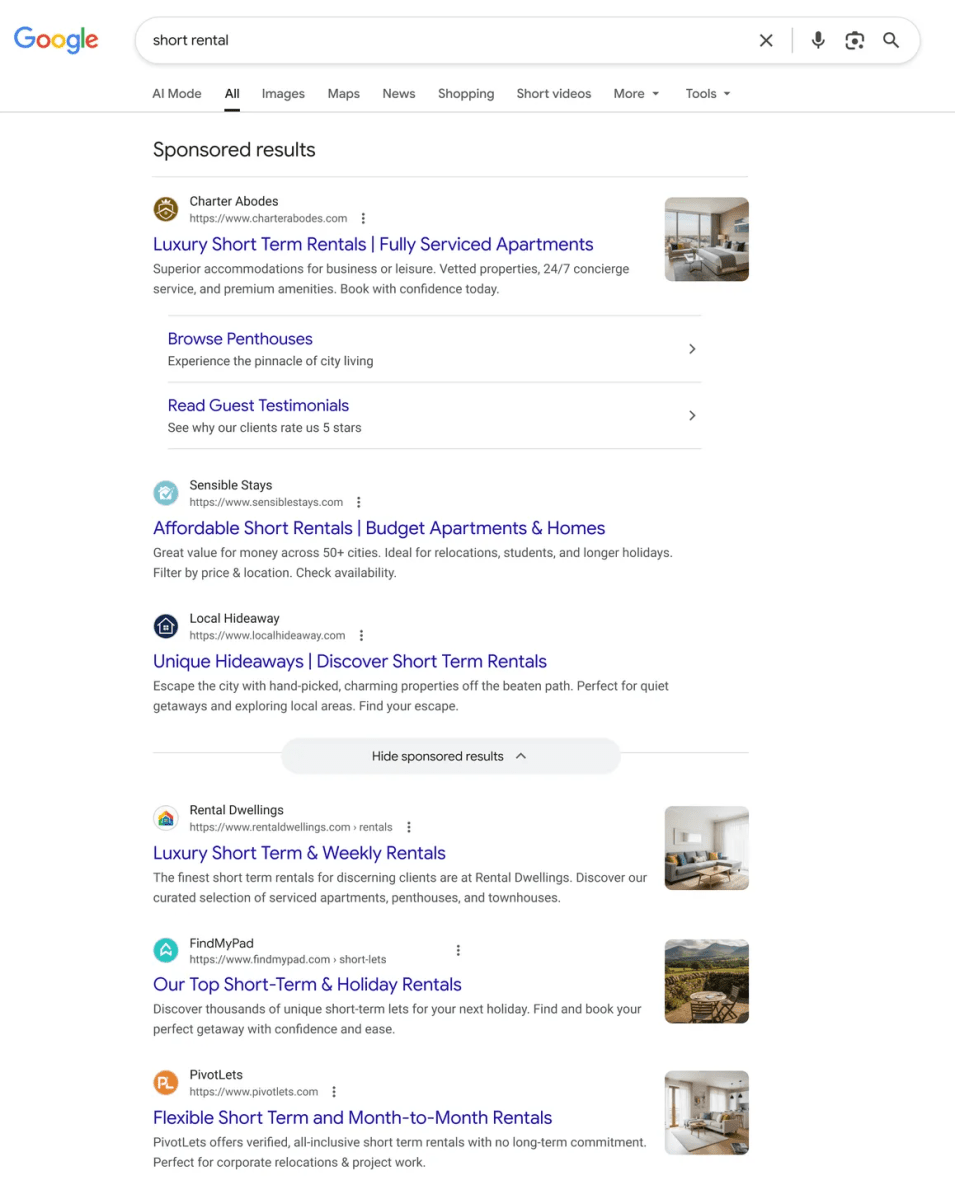
Image: Google (illustration Michael Crider)
Google Search is a prime example of a service that was once the best in the world but has since been bled by a thousand cuts into something that’s more frustrating than useful. It seems that somebody at Google got the message, because the company now says it’s working on making its all-pervasive search advertising a little less annoying.
It doesn’t say so in as many words, of course. According to the Google Ads & Commerce Blog (spotted by PCMag), it’s a move meant for “improving navigation and introducing a new control.” The new look groups all of the text-based links that are paid for into a single “Sponsored results” section, which can be collapsed by clicking or pressing a button. The new look is coming to Search on desktop and mobile, “currently rolling out globally.”

I don’t see the new interface on my own desktop or phone when I use Google Search yet, but even as an admitted Google curmudgeon as of late, I think it’s a step in the right direction. The fact that the biggest chunk of Google’s initial results is advertising that seems (in my entirely subjective opinion) designed to fool you at a casual glance is a big problem. The new look doesn’t totally reverse the trend—it’s still a list of blue links, and you’re still going to have to either click or scroll to get to the results you actually searched for—but it’s an improvement, and you don’t even have to swear at it.
That said, it’ll take a lot more to win me back from DuckDuckGo. The fact that “AI Mode” and LLM-generated results are still the very first tab in Google Search’s interface, even while they tell you that the information they provide might be wrong, doesn’t inspire a lot of confidence. I also wonder what spurred this change that seems less than totally aligned with Google’s advertising trends… possibly some increased regulatory scrutiny on Google ads in the United States and Europe.
Author: Michael Crider, Staff Writer, PCWorld

Michael is a 10-year veteran of technology journalism, covering everything from Apple to ZTE. On PCWorld he's the resident keyboard nut, always using a new one for a review and building a new mechanical board or expanding his desktop "battlestation" in his off hours. Michael's previous bylines include Android Police, Digital Trends, Wired, Lifehacker, and How-To Geek, and he's covered events like CES and Mobile World Congress live. Michael lives in Pennsylvania where he's always looking forward to his next kayaking trip.

.jpeg)





















.jpeg)













 English (US) ·
English (US) ·